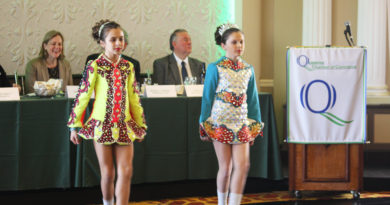Multiculturalism Benefits Us All
BY DAYANA CABEZA AND LILIANA TORELLA
In an increasingly globalized economy, people from different cultures and backgrounds often find themselves working together or serving clients of different nationalities. However, having a significant number of foreigners on a payroll does not make an organization automatically multicultural.
Multiculturalism refers to companies that reflect, through their values and policies, the contributions and interests of the various cultural and social groups that work in them. These organizations are distinguished by their openness and integration, which work to reduce prejudice and reward capacity and professionalism over race, cultural origin, gender or sexual preference.
Understandably, numerous challenges are presented by multiculturalism. Among these are: different styles and reactions towards authority, decision making, conflict management, reaching agreement and coordinating actions; different communication styles; and language barriers related to accents and fluency.
In an organization where multiculturalism is not well managed, employees can become less engaged and motivated, and feel left out and unrecognized. Lack of multicultural awareness can cause low morale, frustration and interpersonal conflict, and limit knowledge transfer between teams. All of these can contribute to lower productivity and return on investment.
It seems clear that leaders who identify and manage these challenges well have better success. Companies that choose to manage multiculturalism and diversity report benefits that may seem imperceptible at first, but in the long run, will differentiate them from their competitors.
Some of the advantages are:
- Diverse cultural ideas and perspectives provided by well-managed multicultural teams create favorable environments for creativity and innovation.
- Organizations benefit from hiring professionals with a variety set of skills. Drawing from a culturally diverse talent pool rather than only hiring locally, can prove especially useful. Usually, well-managed multicultural organizations hire more qualified personnel, with greater sensitivity to perceive the needs of their internal and external clients.
- Multicultural teams can also be professionally enriching, exposing people to new skills and approaches to work, allowing others to learn about global perspectives and traditions, recognizing and bonding with similarities, and abandoning prejudices or biased views of the world.
- A multicultural workforce can increase the competitiveness and profitability of an organization by expanding into new markets.
Multiculturalism awareness is not a Human Resources strategy. It is a business strategy. Leading organizations and teams with challenges associated with multiculturalism is a complex task, which requires the involvement of leaders and top management. To be successful, leaders must immerse themselves within different cultures, be able to communicate and relate to them, understand what is important for them, and embrace differences.
This is a long-term objective, and cannot be achieved overnight. Organizations can start by taking small steps, working with small teams to build a culture of awareness and respect to one another through multiculturalism and communication training. These then can be replicated to the rest of the organization. For this, the support of an expert consultant always facilitates the process, and can help an organization quickly achieve the multiculturalism that will benefit both employees and employers.
Dayana Cabeza and Liliana Torella are co-founders of Be Growth Consulting. Learn more at begrowthconsulting.com or [email protected].






